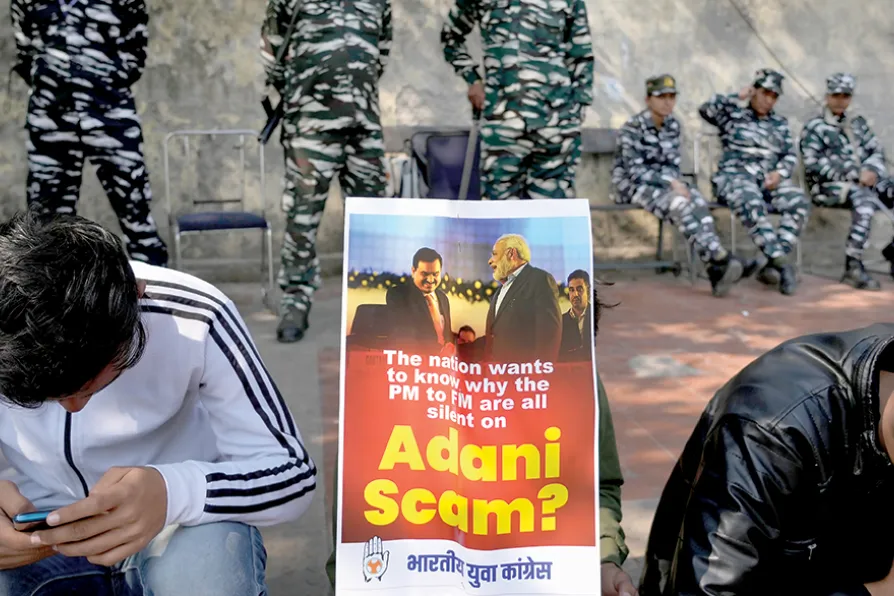John Wojcik pays tribute to a black US activist who spent six decades at the forefront of struggles for voting rights, economic justice and peace – reshaping US politics and inspiring movements worldwide

 NEPOTISM AND CORRUPTION: Members of opposition Congress party, demanding an investigation into allegations of fraud and stock manipulation by India’s Adani Group, display a placard with images of Indian businessman Gautam Adani and Indian Prime Minister Narendra Modi during a protest in New Delhi, India
NEPOTISM AND CORRUPTION: Members of opposition Congress party, demanding an investigation into allegations of fraud and stock manipulation by India’s Adani Group, display a placard with images of Indian businessman Gautam Adani and Indian Prime Minister Narendra Modi during a protest in New Delhi, India
THERE are debates that are clarifying, and then there are debates that are mystifying. This debate in India over fascism is of the latter. It is neither a new debate, nor a real debate.
The Communist Party of India (Marxist) or the CPI(M), which is India’s largest communist party (with over one million members), is preparing to hold its party congress in April. In the months leading up to the congress, the CPI(M) held state conferences to debate the issues of the day and to elect delegates to the congress. During this period, the draft political declaration was circulated.
In it, the CPI(M) does not characterise the ruling Bharatiya Janata Party (BJP) as fascist, but as having “fascistic tendencies” and — for the first time — it referred to the category of “neofascism.” Because of this apparent non-use of the direct term “fascism,” other left forces and some left-liberal intellectuals began to attack the CPI(M), saying that the party was not clear about the role of the BJP and its three-term government in India since 2014.

Far-right forces are rising across Latin America and the Caribbean, armed with a common agenda of anti-communism, the culture war, and neoliberal economics, writes VIJAY PRASHAD

Following the resignation of Nepali Prime Minister KP Oli amid mass youth-driven protests, different narratives have circulated which simplify and misrepresent the complexities and reality on the ground in Nepal at the roots of this crisis, argue VIJAY PRASHAD and ATUL CHANDRA

Indian communist leader MA Baby considers the chilling escalation of violence against minorities and increasing impunity for their attackers under the Modi regime










